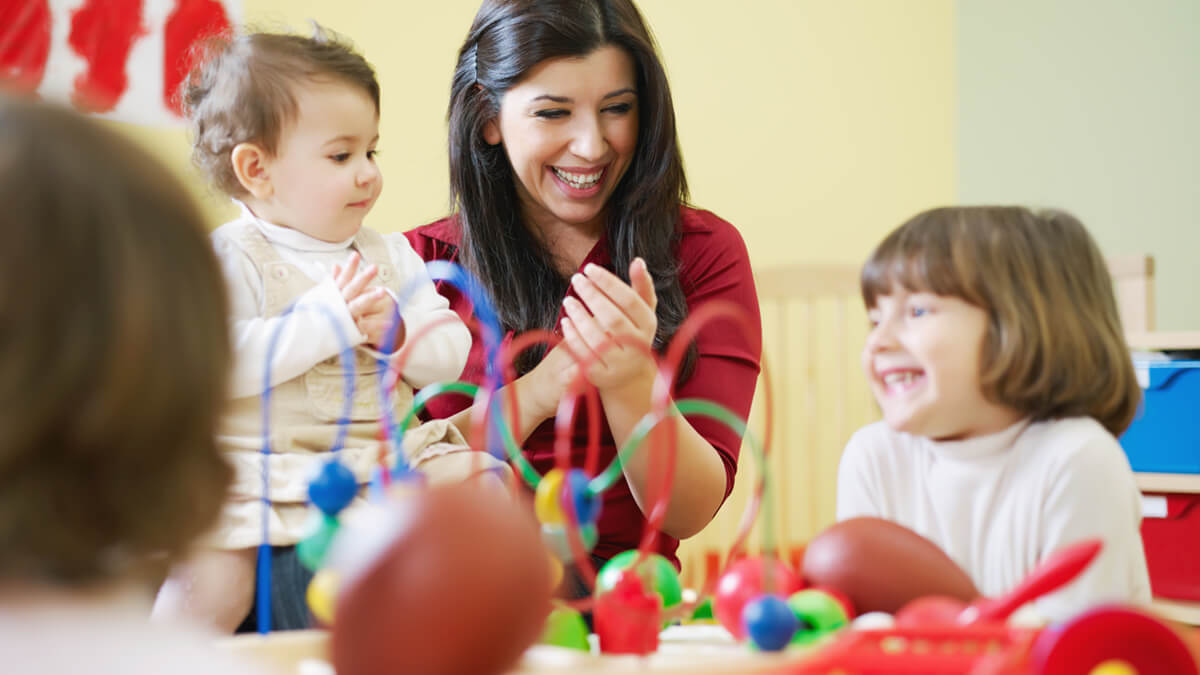As adults, our instinct may be to protect children from disappointment—and even tragedy—but we can help children a lot more if we teach them resilience. Parents play a key role, of course, but early childhood educators may be even better equipped, thanks to their experience and education. By following a few key strategies—and by advancing your knowledge and skills with an elementary education degree—you can help young children develop the life skills they need to recover more easily from daily disappointments and larger challenges.
Why You May Want an Education Degree in Child Development
If you want to work with young children, an elementary education degree can be invaluable. A BS in Elementary Education degree can teach you how to observe and assess children, and how to create effective learning environments geared toward children’s ages and their individual needs.
Continuing your education beyond a bachelor’s degree can increase your skills and knowledge even further. A master’s degree in child development—specifically an MS in Early Childhood Studies—can improve your ability to apply research, examine trends, and work with children in diverse learning environments. Every child is different, and the more you understand about child development, the more you can help each child in your care build resilience. That’s why many early childhood educators also choose to earn a post-master’s Education Specialist (EdS) in Early Childhood Education (Non-Licensure) degree.
Strategies for Fostering Resilience
Once you have a good understanding of how to evaluate children’s needs and create positive learning environments, you can implement a number of strategies to help you foster resilience. The key is to help children develop protective skills in a supportive environment that helps them cope with difficult situations.* The American Psychological Association suggests taking the following steps to help children build resilience:†
- Help children make friends; it helps them gain empathy and builds the kinds of social support systems that strengthen resilience.
- Encourage children to help others, as doing so can be empowering to a child who may feel helpless after a personal challenge or news-making fright.
- Create and maintain routines—knowing what to expect in the classroom can be comforting to children.
- Teach the importance of breaks, as focusing on something other than the source of worry helps foster emotional strength and coping skills.
- Encourage self-care, including making time to eat, exercise, rest, and play—a child’s day should not be 100% scheduled, as self-care includes having fun.
- Set reasonable goals and take steps—even tiny steps—toward those goals to help children feel the sense of accomplishment needed to keep moving forward in the face of a challenge.
- Nurture a positive self-view by helping children remember their successes; this way, they’ll better trust themselves when they’re in a difficult situation.
- Teach the value of perspective by presenting difficult situations from a broader context, helping children envision a positive future and instilling a sense of optimism.
- Encourage self-discovery after children face a difficult situation—help them recognize what the situation taught them about themselves, and they’ll learn to see difficulties as opportunities to grow.
- Remind them that change is a natural part of life, and they’ll start learning how to replace old goals and expectations with new ideas and ambitions.
How Online Education Degree Programs Can Help You Make a Difference
No matter which elementary education or child development degree you’re considering, you may want to consider online education degree programs. Online learning offers you a convenient format that allows you to continue working at your current job—so if you’re already a childhood educator, you don’t have to say goodbye to your students to earn your degree.
Online education degree programs can also help you earn your degree more easily, and potentially at a lower cost. By enrolling in a competency-based education program, you can learn at your own pace and apply knowledge you already have to earn your degree faster. And the faster you earn your degree in education, the faster you can make a difference in children’s lives.
Resilience is one of the most important life skills to have. You can help foster this skill in young children by earning an elementary education or child development degree and creating a supportive classroom environment.
Walden University offers an array of education degree programs. Expand your career options and earn your degree in a convenient, flexible format that fits your busy life.
*Encyclopedia on Early Childhood Development, How Can We Boost Resilience in Children?, on the Internet at www.child-encyclopedia.com/resilience.
†American Psychological Association, Resilience Guide for Parents & Teachers, on the Internet at www.apa.org/helpcenter/resilience.aspx.




